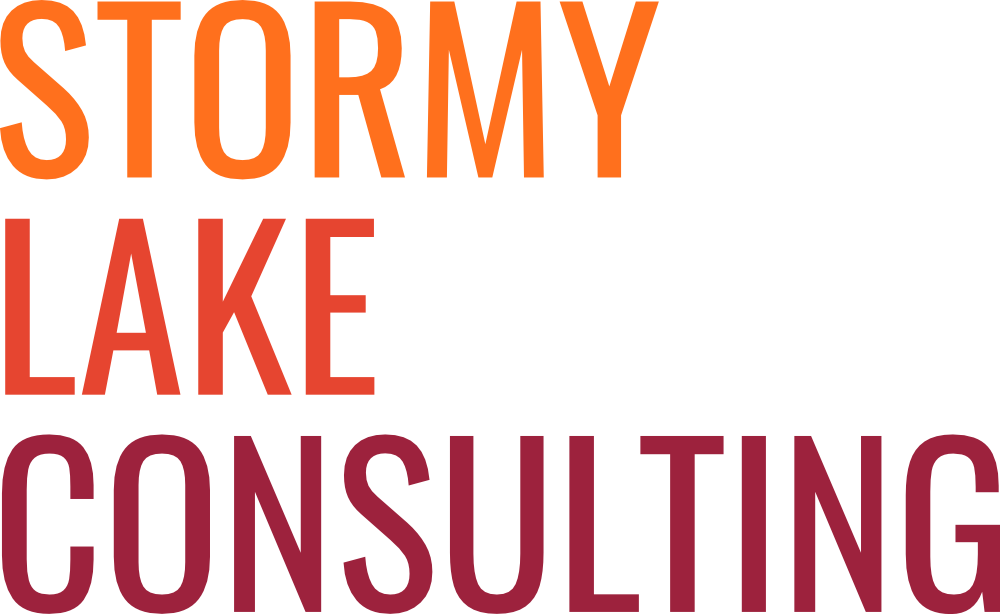The Penitent Weekly Update
I know it's not me killing the grandmothers, but I still feel guilty sometimes.
This week’s penitent is Bob.
In April and December, just so happening to coincide with final exams and project due dates, I am certain to receive emails from students asking for extensions. Usually, the request is explained with a personal tragedy. This semester the tally was two dead grandmothers, a broken leg, and three cases of COVID. I know, rationally, that at other times of the year grandmothers die and students break their legs. I know, rationally, that it’s only when exams come around that students need to tell me about it. But it sure feels like I’m causing a lot of misery by setting due dates. I mean, extra misery, not just the regular exam-stress and due date kind.
My end-of-semester guilt prompted me to take a census of the Stormy Lake team of the things we feel guilty about, that we really shouldn’t feel guilty about. See if you can match the team member to the very forgivable transgression. We feel guilty for...
Going for a run without the dog. The dog who is walked 3 times a day, is rewarded with treats and eats all the elk and deer poop he wants. He’s well cared for.
Caring for my own needs over others.
Not reading the Weekly Letter...Just kidding. (But are they?)
Any conceivable bad thing that happens to our kids. For example, something that happened with my mom on my wedding day. We were walking home from the salon after getting beautified for the occasion and a gust of wind came along and did a number on my hair. Here's the exchange with my mom...
Mom: Oh! Honey I'm so sorry!
Me: Why? It's just the wind.
Mom: I don't know how, but I'm sure somehow this is my fault!
Irrational mom (and dad) guilt is real. Parents, as many of us learn, gain a whole lot of guilt and anxiety to go along with the joys of parenthood. One particularly acute source of guilt in COVID times is our kids’ excessive screen time. Robbed of team sports, alternate caregivers, and friend’s houses (and above all our patience) we often turn to screens in order to keep our kids out of frame in our Zoom calls. While we can’t do much to alleviate parental guilt, we can offer the advice to go easy on yourself and turn subtitles on to help kids read more.
Beyond TV, we’ve scoured the internet to compile a list of common guilty pleasures:
Daily coffee purchases
Listicles – lazy articles that are just a list of things
Online shopping
An extra scoop of ice cream
Emotion by Carly Rae Jepsen
And what does it mean when we feel guilty reading lists about feeling guilty?
We are overwhelmed with sources of guilt, from our students, parenting, diet, habits, and even our taste in pop music. So how do we deal with the guilt we feel? One way is to seek moral cleansing through penance, like the Penitent St. Peter here – performing self-imposed punishments to express our repentance and seek absolution.
Moral cleansing allows us to retain our sense of self-worth. Fundamentally, we want to see ourselves as good, moral people. We feel guilty when we fail to measure up to our own moral standards and moral cleansing lets us restore our sense of virtue.
Sachdeva, Iliev, and Medin at Northwestern University provided compelling illustrations of moral cleansing and its darker flipside, moral licensing. Rather than compensating for sins as in moral cleansing, moral licensing lets us excuse bad behaviour through assurances of our moral virtue. In the author’s words:
“...affirming a moral identity leads people to feel licensed to act immorally.”
Think, “It’s ok for me to use that word, I have black friends.”
Participants were asked to write a story about themselves including a set of positive traits, such as caring, generous, fair, and kind and another group to write a story about themselves including a set of negative traits, such as disloyal, greedy, mean, and selfish. Later, the participants were all asked to make a donation to a charity of their choice. The “virtuous” group was willing to donate half as much money as the “sinful” group.
Moral cleansing and licensing pop up in many contexts. Returning to St. Peter, when the tax code makes church donations more financially beneficial, congregants tend to donate more and attend church less. A sort of modern-day, subconscious indulgence.
As we know from our work lives, sweet or caffeinated indulgences can cleanse us from the sin of being late. Bringing coffee and donuts for the crew being a standard penance for showing up late. At work we also need to watch out for moral licensing. At a personal level, don’t let the great presentation from yesterday give you license to procrastinate today. As consumers we should encourage morally cleansing penance from corporations, but refuse to give moral license for greenwashing.
If this feels like the moral version of the scales of justice, that’s a fair analogy. Adding some moral behaviour on one side can lead to a loss of it on the other side. That’s something we can all work to change.
Stay safe this weekend, and bank some moral license by buying green, making a donation and turning on the subtitles for all your Netflix indulgences.


